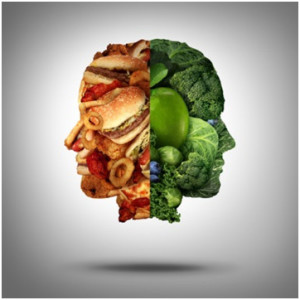Author: Dr. Stephen Chaney
 All teenagers can be a handful at times. Experts tell us that their raging hormones are to blame, but could their junk food diets play a role as well? If so, would something as simple as supplementation improve teen behavior?
All teenagers can be a handful at times. Experts tell us that their raging hormones are to blame, but could their junk food diets play a role as well? If so, would something as simple as supplementation improve teen behavior?
This has been a controversial issue, with some studies saying yes and other studies saying no. With that in mind I thought I would share a recent study that concludes supplementation may improve behavior in teens. While this one study will not resolve the controversy, it does provide some insight into why the results of previous studies have been so contradictory.
Can Supplementation Improve Teen Behavior?
This study (Tammam et al, British Journal of Nutrition, 115: 361-373, 2016) enrolled 196 healthy teens aged 13-16 from a large public school in London. The school was located in an economically depressed area of London where a large proportion of the adults were out of work and had no formal education. Many of the children attending that school had adverse home environments and poor nutrition.
This is an important point. The scientists running the study had specifically chosen a teenage school population that was likely to have poor nutritional status. This poor nutritional status was confirmed by blood samples taken at the beginning of the study which showed the teens were low in iron, folate, vitamin D, vitamin C and omega-3 fatty acids – all of which are important for brain health.
 The students were given either a comprehensive multivitamin plus 541 mg of omega-3 fatty acids (containing 165 mg EPA and 116 mg DHA) or matched placebos for one school term (12 weeks). The study was fully blinded in that neither the students nor their teachers knew who had received the supplements and who had received the placebo.
The students were given either a comprehensive multivitamin plus 541 mg of omega-3 fatty acids (containing 165 mg EPA and 116 mg DHA) or matched placebos for one school term (12 weeks). The study was fully blinded in that neither the students nor their teachers knew who had received the supplements and who had received the placebo.
Blood test taken at the end of the study showed that students taking the supplements had significantly higher blood levels of folate, vitamin C, vitamin D, and omega-3 fatty acids (iron levels remained unchanged) while those nutrient levels were unchanged in the placebo group.
Teachers rated the student’s behavior using the Connors Clinical Index Teacher Rating Scale before the study began and again during the last week of the study. The results were clear cut. Behavior improved in the group receiving the supplements and worsened in the group receiving the placebo.
The researchers also looked at disciplinary infringement logs (you can think of those as disciplinary problems severe enough to send the kids to the principal’s office), but the number of disciplinary incidents per child were too low to draw any statistically significant conclusions.
Why Are Supplementation and Teen Behavior Studies So Contradictory?
 As I said at the beginning of this article, previous nutritional intervention trials looking at teen behavior problems have been conflicting. Some, like this study, have shown a clear benefit of supplementation on teenage behavior. Others have shown no benefit at all.
As I said at the beginning of this article, previous nutritional intervention trials looking at teen behavior problems have been conflicting. Some, like this study, have shown a clear benefit of supplementation on teenage behavior. Others have shown no benefit at all.
Most experts tend to treat all studies on a particular topic as equal. They throw all of the studies into a statistical pot and look at the average effect. When studies are contradictory, as is the case for studies looking at the effect of supplementation on teenage behavior, the positive and negative studies cancel each other out and the net effect is often close to zero. When that happens experts generally consider the intervention as “unproven”.
That is a valid approach, but I also like to look for patterns. I like to ask why the studies have come to such contradictory conclusions.
When you evaluate the studies on supplementation and teenage behavior carefully, a pattern starts to emerge. If most of the teenagers in the study have poor nutritional status or have severe behavior problems (such as teenagers in prison), the studies generally show a benefit of supplementation. If most of the teens in the study have good nutritional status at the beginning of the study, the results of supplementation are very difficult to detect. Similarly, if most of the teens in the study are well behaved to begin with, supplementation appears to have little effect.
What Does This Mean For Your Teenager(s)?
The causes of teenage behavior problems are many. Poor nutrition may play a significant role, but genetics, hormones, home environment and school environment are important as well. However, teen eating habits are often less than ideal. If you have a teenager with behavior problems and poor eating habits, supplementation is an inexpensive intervention that may just contribute to better behavior. So, can supplementation improve teen behavior? Maybe.
The Bottom Line
- A recent double blind, placebo controlled study showed that supplementation with a multivitamin plus omega-3s significantly improved in-school behavior in a group of British teenagers.
- The study was performed in an economically depressed school district where many children suffered from poor nutritional status. Blood test taken at the beginning of the study showed that the students were low in iron, folate, vitamin C, vitamin D, and omega-3 fatty acids. Blood tests taken at the end of the study showed improved nutritional status for every nutrient except iron in the group taking supplements.
- When you combine this study with previous studies, a pattern emerges. If most of the teenagers in the study have poor nutritional status or have severe behavior problems (such as teenagers in prison), the studies generally show a benefit of supplementation. If most of the teens in the study have good nutritional status at the beginning of the study, the results of supplementation are difficult to detect. Similarly, if most of the teens in the study are well behaved to begin with, supplementation appears to have little effect.
- What does all of this mean to the general public? Nutritional status is just one component of teenage behavior. Hormones, genetics, home environment and school environment are important as well. However, teen eating habits are often less than ideal. If you have a teenager with behavior problems and poor eating habits, supplementation is an inexpensive intervention that may just contribute to better behavior.
These statements have not been evaluated by the Food and Drug Administration. This information is not intended to diagnose, treat, cure or prevent any disease.
